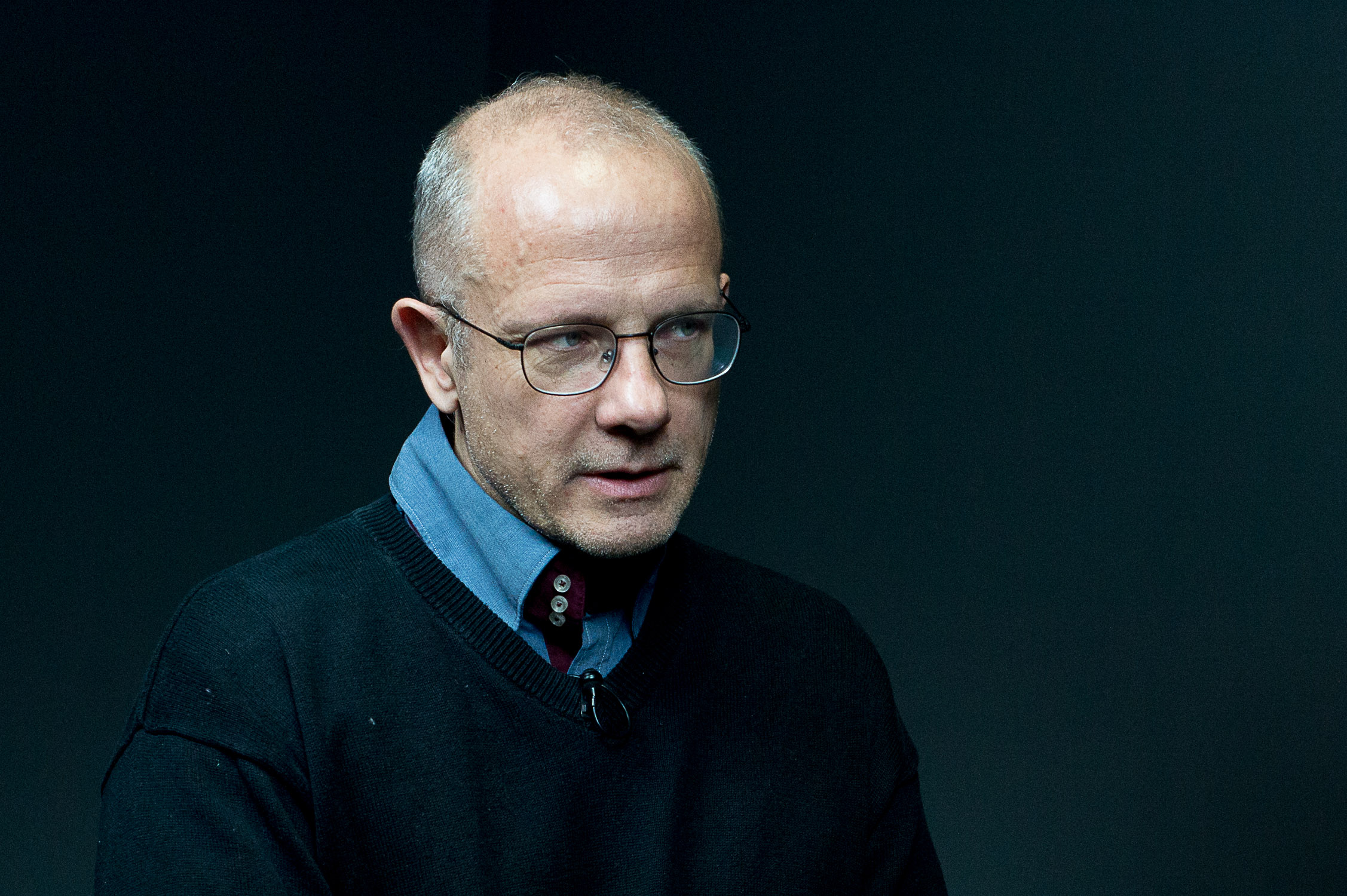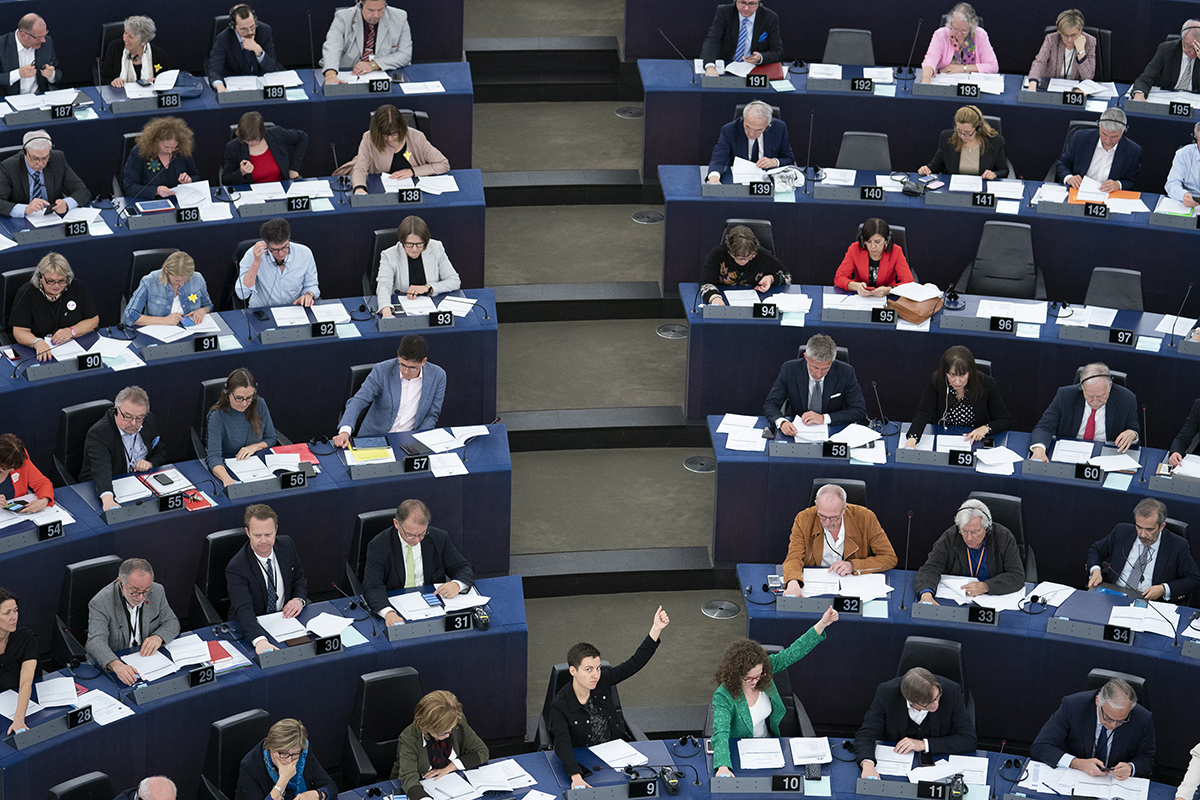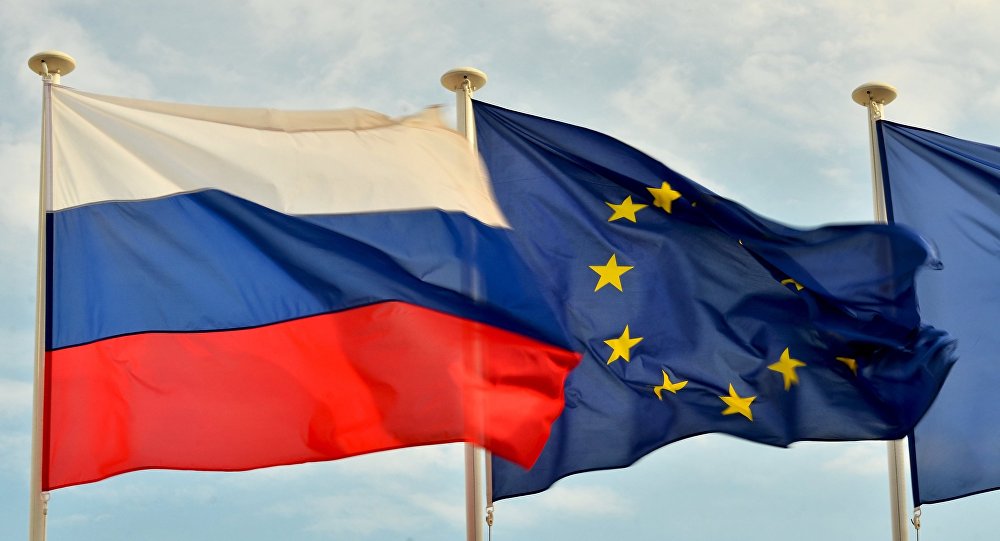During the last weekend of May in the European Union elections to the European Parliament were held. The traditional members of the grand coalition - the Progressive Alliance of socialists and Democrats and the European people's party (EPP) - did not receive enough votes to create a majority. And now they will have to negotiate with other forces to form a coalition. A quarter of the votes were taken by the ultra-left and ultra-right forces, but they will not be able to influence the policy of the European Parliament. Ukraine will have to actively establish relations with liberals from neighboring countries. German political scientist ANDREAS UMLAND spoke about it in an interview to "Apostrophe".
- What could be expected from the EU after these elections?
- With the arrival of anti-European nationalists from different countries, the working atmosphere in the European Parliament will change. Even in EU public organizations, there will be brighter debates between traditional social democratic social forces on the one part, and right-wing populists and nationalists on the other part.
Christian Democrats and social Democrats lost (the former main parties in the European Parliament, which are elected in Germany - "Apostrophe") votes, and on the other hand, the liberal Democrats and the "green" received more mandates.
Apparently, there will be a new coalition format for the election of a new President of the European Commission and the formation of a new European Commission – the EU executive body. This format can be joined by liberal Democrats, "green" or both groups. Old people's parties are losing their weight, and ideologically certain parties increase their influence – this is a big change. But nationalist parties will be excluded from forming a coalition.
Old people's parties are losing their weight, and ideologically certain parties increase their influence – this is a big change. But nationalist parties will be excluded from forming a coalition
- Why did small "right" parties win at the local level, and the traditional EU "political heavyweights" were defeated?
- There are many explanations for this. One of the factors of recent years, which has greatly changed the policy - the influence of social networks, the Internet and the spread of false narratives, false information. This has led to an equation of classical journalism and propaganda structures that can spread all kinds of conspiracy and false information through new media – social networks.
But this is only one of the factors. We can only hope that over time, the public in different European countries, where populist parties have acquired a new meaning, will cope with the challenges of rapid dissemination of false information, fake news and conspiracy narratives.
- And these right-wing parties to some extent have ties with the Kremlin and Russian President Vladimir Putin.
- Many of these parties sympathize with Putin, some have other connections. Speaking about financial aid, we know for sure that it existed in relation to the party of Marine Le Pen. There may have been financial flows for other parties. Of course, there are right-wing parties in Poland and Estonia that are critical of Russia, but in Western Europe, most of these parties enjoy ties with the Kremlin. Sometimes the Kremlin in its media, for example, in Russia Today, conducts some propaganda for them.
- Can we say that Russia supported them with the help of propaganda and "troll factory"?
- There were attempts, but I would not overestimate the Russian factor. It was present in the American elections and may have even greatly influenced the outcome of that election because there were several parallel operations by Russia in favor of Donald Trump rather than the other candidates. There was support for Marine Le Pen, which I have already mentioned. But I would not overestimate Russia's influence. After the American elections and the case of Le Pen, Western countries began to monitor all these operations more closely. Therefore, I would not consider the Kremlin to be one of the main factors in the popularity of right-populist parties in the last elections.
- Russian Ambassador to Italy Sergey Razov has already said that he expects improvement of relations between Russia and the EU? Is any easing or lifting of sanctions possible?
- I do not see any reason to assume that there will be a radical change in the relations of the European Union with Russia. Most of the anti-European parties that have passed to the European Parliament have conflicts with the European Union. In particular, this applies to the Brexit party, which in a relative sense won the elections in the UK, but others also have a more or less open conflict with the EU. These parties are partly or fully the antithesis of European integration and the way it has been going since 1951, according to their ideology. Because of this, they are likely to be excluded from the EU's Executive bodies and remain isolated within the European Parliament. They can block certain decisions, try to interfere with the work, but they will not take a direct part in the formation of EU policy, including the policy of Ukraine and Russia.
Therefore, I do not yet see the basis for fundamental concern. Nevertheless, the last Sunday of May was a sad day for the EU, because the anti-European (I would call them so) parties gained quite big number of votes. But they control less than a third of the mandates in the European Parliament, because their direct influence on the behavior of the European Union is limited.
- Right-wing parties, for example in Poland and Hungary, opposed the patriotic or linguistic policy of Kyiv. They can continue the same rhetoric in the European Parliament. How should Ukraine behave?
- I do not see how Ukraine can change its foreign policy and influence the European Parliament. On the one hand, Ukraine can adapt to the requirements of the European Parliament on the memory policy that had been put forward earlier. On the other hand, Ukraine should intensify dialogue with all EU countries that have claims to it, and try to soften this criticism, which is heard from Poland, Romania and Hungary. Moreover, not only nationalist forces criticize Ukraine on several topics, but also liberal ones. They are the forces with whom it is necessary to conduct active dialogue and to correct something that is controversial.
There is, for example, a resolution of the European Parliament in 2010, which criticizes the cult around the Organization of Ukrainian nationalists. There is criticism in the field of language and educational policy. Over the past 5 years, relations between Ukraine and Poland have not developed very well and it is there that we need to improve the situation. Especially due to the fact that in Poland almost all parties are anti-Putin ones and, potentially, pro-Ukrainian parties. We are not talking about pro-Russian forces that are opposed to Ukraine.
- Can pro-Putin "National Association" of Marine Le Pen and the Italian "League of the North" still promote the abolishment of sanctions against Russia or at least their mitigation?
- It does not make much sense to have a dialogue directly with them. They went far in cooperation personally with Putin – there were personal meetings and photos of the Italian interior Minister Matteo Salvini with the leader of the Kremlin. It is necessary to work with the Pro-Ukrainian parties – in the European Parliament they form the majority.
The European Parliament is historically pro-Ukrainian. I think the new one will be the same – even more than individual EU countries. The Parliament has always demanded from the European Union a greater support for Ukraine – providing it with prospects for membership, for example. And this situation will continue.
Therefore, I would recommend to cooperate as much as possible, to invite deputies, to come to meetings, to make presentations. In the European Parliament there are very favorable grounds for Ukrainian themes. Although anti-Ukrainian right-wing populist parties have improved their positions, 25% mandates do not mean it is a disaster.
- That is, sanctions against Russia in the near future will not be removed?
- It is not to be decided by the European Parliament – it is decided by the EU. And it is difficult to foresee how individual countries will behave. Even one state can block the extension of sanctions. Most significant sanctions require the consent of all EU member states. Germany used its weight in the EU to persuade pro-Russian governments to vote to extend sanctions every six months.
- That is, the future of sanctions is not defined, is it?
- Unfortunately, no. Parliament is not an acting party here.
- This time a lot of "green" members were elected to the European Parliament. In Ukraine, the situation with the environment is not the best. Can we count on their support?
- I would talk about the German "greens", which I know best. This may be the most pro-Ukrainian party in Germany on many issues, and this is due to the Chernobyl disaster of 1986, which led to the fact that the German "greens" in the second half of the 80-ies of the twentieth century began to be actively interested in Ukraine. Therefore, a good result of the German "green" party is favorable for Kyiv. And we can be happy that such experts on Eastern Europe as Viola von Kramon and Sergei Lagodinskiy became deputies from the "Green party". They will promote the pro-Ukrainian agenda.




